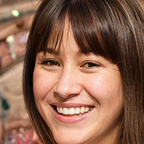Will Estrogen Help Hair Growth? The Truth Behind Hormones and Hair Loss
Hair loss is a common problem that affects many people, especially women. It can be caused by various factors, such as genetics, stress, illness, medication, or aging. But one of the most important factors that influences hair growth is hormones. Hormones are chemical messengers that regulate various bodily functions, including hair growth. In this article, we will explore how estrogen, one of the main female hormones, affects hair growth and what you can do to prevent or reverse hair loss caused by hormonal imbalance.
What is Estrogen and How Does It Affect Hair Growth?
Estrogen is a female hormone that plays a vital role in reproductive and sexual development. It also affects other aspects of health, such as bone density, mood, skin, and hair. Estrogen helps maintain hair growth by prolonging the anagen (growing) phase of the hair cycle and preventing the telogen (resting) phase, where hair falls out. Estrogen also balances the effects of testosterone, another hormone that can cause hair loss by shrinking the hair follicles and producing a hormone called dihydrotestosterone (DHT), which inhibits hair growth.
Estrogen levels fluctuate throughout a woman’s life, depending on her age, menstrual cycle, pregnancy, menopause, and other factors. When estrogen levels are high, such as during pregnancy, hair tends to grow thicker and faster. When estrogen levels are low, such as during menopause, hair tends to become thinner and fall out more easily. Low estrogen levels can also cause dryness, brittleness, and breakage of the hair, as well as scalp inflammation and reduced blood flow to the hair follicles.
How to Treat Hair Loss Caused by Low Estrogen Levels?
If you suspect that your hair loss is caused by low estrogen levels, you should consult your doctor to confirm the diagnosis and rule out any other underlying conditions. Your doctor may prescribe hormone replacement therapy (HRT), which involves taking synthetic estrogen and progesterone to restore the hormonal balance and prevent the symptoms of menopause, including hair loss. However, HRT is not suitable for everyone and may have some side effects and risks, such as breast cancer, blood clots, and stroke. Therefore, you should weigh the pros and cons of HRT with your doctor before deciding to take it.
Alternatively, you may opt for natural or alternative ways to boost your estrogen levels and improve your hair growth. Some of these methods include:
- Eating a balanced diet rich in phytoestrogens, which are plant compounds that mimic the effects of estrogen in the body. Some of the foods that contain phytoestrogens are soy, flaxseeds, sesame seeds, lentils, beans, oats, barley, apples, carrots, and pomegranates.
- Taking supplements that contain vitamins, minerals, and herbs that support hair growth and hormonal balance. Some of the supplements that may help are biotin, zinc, iron, vitamin D, vitamin E, saw palmetto, black cohosh, and red clover.
- Applying topical products that contain ingredients that stimulate hair growth and nourish the scalp. Some of the ingredients that may help are minoxidil, caffeine, rosemary oil, peppermint oil, lavender oil, and aloe vera.
- Using a red light therapy cap, which is a device that emits low-level laser light to the scalp and stimulates blood circulation, cellular metabolism, and hair follicle activity. Red light therapy has been proven by multiple studies to be an effective and safe treatment for hair loss, as it can increase hair density, thickness, and strength. A red light therapy cap can be used at home, as it is easy to use, comfortable, and portable. You can wear it for a few minutes a day, a few times a week, and see results in a few months.
Conclusion
Estrogen is a hormone that can help hair growth by extending the growing phase of the hair cycle and counteracting the effects of testosterone and DHT. However, when estrogen levels drop, such as during menopause, hair loss can occur. To prevent or reverse hair loss caused by low estrogen levels, you can try hormone replacement therapy, natural remedies, or home red light therapy. The best option for you depends on your personal preference, medical history, and budget. Whatever you choose, remember to consult your doctor before starting any treatment and to be patient and consistent with your hair care routine.
I hope you found this article informative and helpful. If you have any questions or comments, please feel free to share them below. I would love to hear from you and learn from your experience. Thank you for reading and have a great day!
